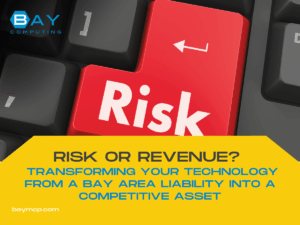Best Practices in Securing Mobile Healthcare Devices
Every day, healthcare providers depend on mobile devices to access patient data, communicate with staff, and manage care. These powerful tools make life easier, but they also carry risks if not handled properly. The best way to secure mobile healthcare devices is to use strong access controls, encrypt all data, and enable remote wiping in case a device is lost or stolen.
Cyberattacks and data breaches can happen when security steps are skipped or forgotten. Healthcare workers and organizations need simple rules that fit into busy routines and protect sensitive information. Patients and professionals both benefit when good security is made a priority.
Core Strategies for Securing Mobile Healthcare Devices
Healthcare organizations need to focus on strong authentication, reliable encryption, and prompt security maintenance when protecting mobile devices. These measures help reduce risks of data breaches, unauthorized access, and information loss.
Device Authentication and Access Controls
Device authentication stops unauthorized users from accessing patient data or critical apps. Using unique user IDs with strong passwords or PINs is a first step. Biometric options, such as fingerprint or facial recognition, add a layer of protection.
Two-factor authentication (2FA) makes it even harder for attackers to break in. Devices should also have automatic lockout features after a certain period of inactivity. Role-based access can be used so users only see the data necessary for their jobs.
Healthcare providers should train their staff to follow access control policies. Enabling remote lock and wipe functions allows for lost or stolen devices to be secured quickly.
Data Encryption and Secure Communication
Storing and transmitting patient data without encryption leaves it open to theft. Devices should use full-disk encryption so that data is protected if the device is lost. Messaging and file-sharing apps on healthcare devices must support encrypted communication to keep sensitive information secure.
Using Virtual Private Networks (VPNs) on mobile devices helps protect data sent over the internet, especially on public Wi-Fi. Healthcare apps should be tested for security flaws before use. If possible, choose apps and tools that offer end-to-end encryption.
Cloud backups should also be encrypted. This ensures that stored files remain protected, even if cloud storage is breached.
Regular Security Updates and Patch Management
Weaknesses in device software can be targeted by attackers if left unpatched. Mobile healthcare devices need timely updates for both the operating system and any installed apps.
IT teams should set up automatic updates whenever possible. Patch management policies are important to track which devices and apps need attention. If vendors release security patches, these must be applied as soon as possible.
Delays in updates increase the risk of viruses or ransomware attacks. Staff should be educated to recognize and avoid suspicious apps or downloads. Regular checks for outdated software make it easier to fix problems before they are exploited. Security checklists from government agencies provide practical steps for ongoing device protection.
Advanced Security Measures and Compliance
Securing mobile healthcare devices requires more than just basic protections. It needs advanced tools, active threat monitoring, and strict compliance with healthcare privacy laws. Each part works together to reduce risks, defend sensitive information, and keep devices safe in everyday use.
Mobile Device Management Solutions
Mobile Device Management (MDM) solutions let organizations control, monitor, and secure mobile healthcare devices from a central dashboard. An effective MDM lets IT staff enforce strong passwords, configure security settings remotely, and erase data if a device is lost or stolen.
MDM helps set device restrictions. For example, it can block access to risky apps and protect sensitive health information from leaks. It also allows rapid patch updates so devices always have the latest security fixes. Mobile device management is especially useful for healthcare teams that need to manage a large number of phones and tablets on different networks.
Using MDM, healthcare groups protect both company-issued and personal devices under a single system. Solutions like iPlum and others recommend using mobile device management to protect patient information and comply with regulations.
Endpoint Threat Detection
Endpoint Threat Detection tools scan devices in real time for malware, suspicious activity, or unauthorized access. They can automatically block threats and alert security teams if a device has been compromised.
These systems often use machine learning to spot unusual behaviors that might signal a breach. They also update their threat lists daily to stay current with new types of attacks. Some solutions allow healthcare IT to view all device statuses from one dashboard, making it easier to act quickly.
Threat detection technology is critical due to the increasing number of attacks on healthcare networks. It helps stop ransomware and phishing before patient data is stolen.
HIPAA and Regulatory Compliance
Healthcare mobile devices must follow strict privacy rules, such as HIPAA. HIPAA demands strong encryption, secure messaging, and regular audits. Devices must also use reliable user authentication to stop unauthorized people from getting access.
Complying with HIPAA and similar privacy laws means turning on device and network encryption, being able to erase data remotely, and keeping logs of access. Regular staff training is important too, so everyone knows the right ways to handle sensitive information.
To stay compliant, many healthcare organizations follow recommended practices, including data privacy safeguards, frequent security reviews, and limiting who can access patient data. Non-compliance can lead to large fines and loss of trust.
Protect Your Patients and Your Practice with Expert IT Support
Don’t let mobile device risks compromise patient care. Bay Computing specializes in securing healthcare IT solutions, including mobile device management, data encryption, and HIPAA compliance.
Contact us today to strengthen your mobile security and safeguard your healthcare operations.




